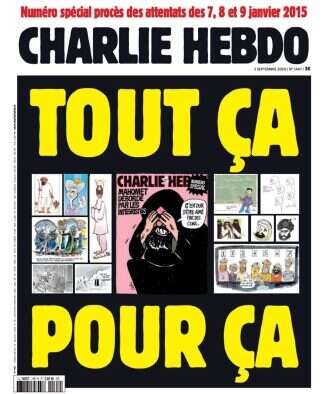
Freedom of expression campaign group Reporters Without Borders (RSF) has filed a lawsuit against Facebook in France claiming it is failing to provide the “safe” online environment it promises, both for journalists and the wider public.
RSF’s lawsuit accuses Facebook of “deceptive commercial practices” and claims its pledges to users are “largely mendacious” because of the disinformation and hate speech it allows to circulate.
The case has been filed in France, where Facebook has 38m users – including 24m daily users – but RSF said a ruling “has the potential for a global impact” because the platform’s terms of service are the same around the world. The lawsuit also concerns Facebook Ireland, and RSF said it may file more lawsuits in other countries.
In response Facebook said it has invested hugely in its safety and security team and is using research, experts and technologies to tackle disinformation and hate speech “in the most comprehensive and effective way possible”.
RSF said its lawsuit uses expert analysis, personal testimony and statements from former Facebook employees to demonstrate how the platform allows disinformation and hatred, towards journalists and in general, to flourish. It alleges that this is contrary to the claims it has made in its adverts and terms of service.
French consumer legislation, which RSF said is “especially well-suited” to deal with the issue and contributed to its decision to file in France, says that a practice is deceptive if it is “based on false or misleading allegations, indications or presentations” about the “essential characteristics of the good or service” and “scope of the advertiser’s commitments”.
Facebook’s terms of service promise to “exercise professional diligence” in providing a “safe, secure and error-free environment”, while its community standards state it aims to “significantly reduce” the distribution of false information.

Charlie Hebdo front cover September 2020
RSF cited “dozens of comments containing insults, threats and calls for violence” posted on Facebook against French satirical magazine Charlie Hebdo in September last year after it republished its controversial cartoons of the Prophet Mohammed at the start of the trial of 14 accomplices in the attacks that resulted in the deaths of 12 people in a rampage at its offices in 2015.
A second legal officer’s report filed as part of the lawsuit looks at hate messages and threats against journalists at French TV programme Quotidien and regional newspaper L’Union.
A photographer at L’Union was seriously injured while reporting in the field in an attack last month and the newspaper has supported the RSF case with a statement about the verbal violence routinely used to denigrate its journalists on Facebook.
Among Facebook’s efforts to provide more safety measures are a journalist registration tool that launched in countries including the UK and France this year to give reporters better security features.
But The Guardian revealed on Tuesday that Facebook’s bullying and harassment policy allows users to call for the deaths of public figures, its definition of which includes journalists who are employed to “to write/speak publicly”.
Press Gazette revealed last summer, at a time when Facebook was facing an ads boycott over hate speech and misinformation, that the platform was the biggest source of false claims about coronavirus.
And a recent report from anti-disinformation non-profit First Draft described Facebook as the “hub of vaccine conspiracy theories” for French-speaking communities.
A Facebook spokesperson said: “We have zero tolerance for any harmful content on our platforms and we’re investing heavily to tackle hate speech and misinformation.
“Over the last few years, we’ve tripled the size of our safety and security team to 35,000 and built artificial intelligence technology to proactively find and remove harmful content.
“We have removed 12 million pieces of content containing harmful misinformation about Covid-19, and we have built the largest global third-party fact-checking network, with over 80 partners across the world. They have helped us add warning labels on over 167 million pieces of Covid-19 content on Facebook. Last month we also introduced special protections for personal Facebook profiles of journalists in France and other European countries.
“Our enforcement will never be perfect, but while nobody can eliminate misinformation and hate speech from the internet entirely, we continue using research, experts and technologies to tackle them in the most comprehensive and effective way possible.”
Email pged@pressgazette.co.uk to point out mistakes, provide story tips or send in a letter for publication on our "Letters Page" blog

